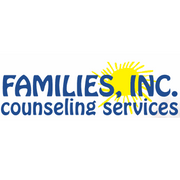3 Eating Disorders That Parents Should Stay Aware Of

As kids grow older, it’s normal for them to experience changes in appetite, as well as food preferences. However, in some cases, adolescents may develop unhealthy eating behaviors that can pose serious and life-threatening health threats. With 30 million people estimated to be affected by eating disorders, parents must know how to recognize these problems in their children and what they can do to help—such as by seeking out mental health services. To help you protect your child’s health and wellness, here’s what you should know about the three most common eating disorders.
3 Common Eating Disorders That Children Can Develop
1. Anorexia Nervosa
Anorexia nervosa, commonly referred to as anorexia, is an eating disorder in which a person significantly restricts weight gain by avoiding food or exercising excessively.
Without adequate nutrients and hydration, those with anorexia face a higher risk of severe weight loss, hair loss, weakness, fatigue, brittle bones, kidney failure, and heart failure.
 Your child may need mental health services for anorexia if they are continually disinterested in eating or obsess over calorie counts. Other common symptoms include unexplainable tiredness, depression, abnormal blood counts, missed periods, and concerning weight loss.
Your child may need mental health services for anorexia if they are continually disinterested in eating or obsess over calorie counts. Other common symptoms include unexplainable tiredness, depression, abnormal blood counts, missed periods, and concerning weight loss.
2. Bulimia Nervosa
Bulimia nervosa, or bulimia, is an eating disorder in which a person forces themselves to vomit so they do not digest food, and in turn, do not gain weight. In some cases, a person will binge—or eat lots of food—before throwing up.
Repetitive vomiting can lead to esophageal and gastric rupture, peptic ulcers, pancreatitis, and tooth decay. Bulimia also causes electrolyte imbalances that may lead to potentially fatal organ problems—such as heart failure.
Unlike anorexia, weight loss isn’t always noticeable with bulimia. Some signs your child may be bulimic include frequent trips to the restroom after eating, intense fear of weight gain, and use of laxatives or diuretics.
3. Binging
Binge eating occurs when someone consumes large amounts of food over small periods of time. Your child may be affected by this eating disorder if they eat rapidly, have low self-esteem, hoard food, or develop unusual eating rituals.
Excessive consumption of food can lead to a variety of health problems—such as high blood pressure, high cholesterol, heart disease, type 2 diabetes, and gallbladder disease.
While eating disorders can be alarming, Families, Inc. Counseling Services offers comprehensive mental health services to help young individuals recover from these conditions. With 11 locations throughout Arkansas, personalized counseling and group therapy are also available to help clients recognize and correct unhealthy behaviors. Staffed by trained counselors and therapists, this clinic can also help treat other co-occurring psychiatric disorders—such as depression and anxiety. To learn more about these services, visit this compassionate counseling provider online. If you’d like to schedule a convenient consultation, call a friendly team member at (877) 595-8869.
About the Business
Have a question? Ask the experts!
Send your question

